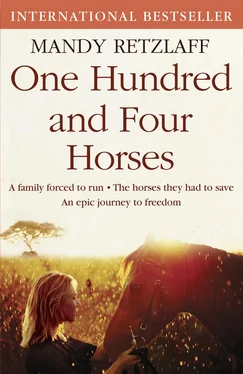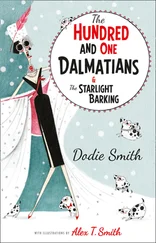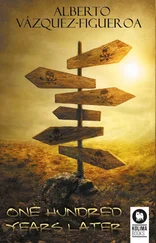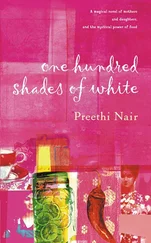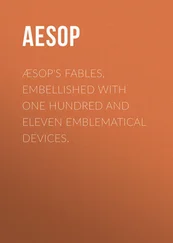Soon after the referendum was lost, Jay returned to Crofton to spend the week with us. The whispers of what was happening on Zimbabwe’s farms had reached the hunting areas too, and Jay—who knew every inch of the land, in a way much deeper even than Pat and I did—was keen to know what was happening on our own farm. We told him of the settlers we had seen drifting through, the tension in the air on Two Tree, but it was not until Jay was about to leave us again that we had the first indication that we, as a family, were in the firing line as well.
Jay and Pat had been talking with Charl about the problems he was having with war vets at Two Tree. There was a sudden influx of settlers he had seen on his land from the nearby resettlement areas. Poaching was also getting out of hand as they moved over with their hunting dogs. As the afternoon waned, Charl, Pat, and Jay climbed back into the Land Rover to begin the slow crawl back to Crofton. Dusk was gathering, and the dying light set the bush to brilliant color: crimsons and reds burst through the wooded foliage; the red dirt tracks looked like licks of flames between fields of tall wheat.
Then, a gunshot cleaved the silence.
Pat and Jay immediately recognized the gunshot for what it was. A crack, like concentrated thunder, had split the air. Instinctively, Pat slammed his foot on the gas pedal. The Land Rover slewed wildly in the dust. Pat craned to look through the back windshield—but, all about, the farm seemed still. He wrestled with the wheel, brought the Land Rover back into line, and, with his foot still pressed hard to the floor, thundered back toward Crofton.
In the back, Jay reached instinctively for the shotgun hidden underneath the seat. He ducked at the window, the gun tight to his chest, keen eyes surveying the bushy koppie all around, in case he might see some figure lurking in the brush. Pat was proud to see how Jay reacted, so suddenly and so decisively. His months of training in Zimbabwe’s hunting areas seemed to have given him even more steel.
At the farmhouse, Kate and I were waiting. When the Land Rover appeared, kicking up clods of earth, we knew that something was wrong. Pat wrenched the vehicle around, and he and Jay tumbled out, their faces lined in a strange mixture of bewilderment and fury.
“What happened?” I asked.
Already, Jay was on his hands and knees, running his hands along the doors and rims of the Land Rover, as if searching for a tick in one of the horses’ flanks.
He looked up, eyes screwed shut as he squinted back the way they had come.
“Somebody shot at us,” Jay breathed.
I looked at Pat. “Shot at you?”
“From somewhere, up in the bush.”
I fell silent.
I breathed and said, “They’re already here, aren’t they?”
Without words, Pat nodded. Finally, he said, “There could be war vets ”—he said it with a strange lilt, because really they were not war veterans at all, only thugs in Mugabe’s employ—“all over the farm and we just wouldn’t know it.”
“What’s happening here, Mum?” Jay had some of his father’s grit in his voice. It was a shock to understand, in that moment, how grown-up my second son had become.
I didn’t know how to respond, how to explain. There was so much to think about—how our nation had come to this, how we had found ourselves in such a perilous position, how we had walked blindly—even willingly—into such a confrontation. Issues of land reform in Britain’s old colonies were complex and often evoked great passions, as our neighbors in Kenya could testify to only too well. In the 1960s, they had gone through their own process of reform. In Zimbabwe, the interests of landowners had been protected in 1979 by the Lancaster House Agreement, which paved the way for the end of the bush war and Rhodesia’s transition to Zimbabwe. The agreement protected the rights of those who had owned, or been given, lands under the old government for ten years, guaranteeing that their land could be acquired by the government only on a willing seller, willing buyer basis—and that, even in those circumstances, adequate compensation would be paid. On top of this, before any farms were purchased or land bought to be opened up for agriculture, the government had the right to veto the sale, or else provide a certificate declaring it had “no objection” to the sale. It was in this climate that we had become the owners of our farm. We owned the land legally and legitimately. Yet, now, as I watched Jay run his hands across the bullet hole scored into the Land Rover, I felt a terrible foreboding: all of the old guarantees, on which we had built our lives, to which we had pledged our children’s futures, were already gone.
That night, we returned to Two Tree for dinner. In the farmhouse, Tertia poured us drinks. Like me, she didn’t seem to want to hear the conversation flowing at the other end of the table.
“It won’t come to that,” Pat said, his voice unfaltering. “It would be the end if they did. Agriculture’s all this country has …”
He had said the same as we rode to Two Tree, our eyes on the hills for fear of more shots. Zimbabwe was not a country rich in mineral resources like so many other nations in Africa. Our only real resource was the land itself: rich and verdant and fertile for farming. It was not for nothing that we were called the “breadbasket of Africa.” Ours was a country that did not go hungry, and one that could afford to pour grain and other crops into its neighboring nations. Without agriculture, we were nothing. The country’s economy was already in tatters; the idea that the government would exacerbate that by systematically destroying the agriculture on which it depended seemed, to Pat, absolute nonsense.
The way Charl was looking at Pat, I could tell he did not feel the same.
“It’s just not the way Mugabe’s thinking. Mugabe doesn’t think about the economy. It’s as if he still thinks there’s a war. He isn’t thinking about five, ten years … He isn’t thinking about next year, even. He’s”—Charl paused, as if weighing up the thought—“thinking about votes ,” he concluded. “It isn’t even money. It’s power.”
If the reports we had heard were even fractionally true, Charl had a point. It wasn’t only the farms held by white landowners that were being targeted. Since the referendum was lost, thugs and soldiers in the government’s employ had stepped up their tactics against members of the MDC—and, perhaps more important, against those members of the electorate who had dared to voice opposition by voting with the MDC in the referendum. There was a parliamentary election on the horizon, too, and with the support the populace had shown for the MDC in the referendum, we expected the MDC to claim a record number of seats. The fact that Mugabe and his ZANU-PF government were reacting with such aggression could easily have been, as Charl contended, a deeply political move.
“It still doesn’t make sense,” Pat returned. “The economy is politics. The economy is the votes. If they ruin agriculture, they ruin it all. They’re not stupid. They have to see that.”
Lay waste to the economy, Pat argued, and they laid waste to their chances of winning even a single seat in the next election. It was, he said, 1960s politicking—but we were living, now, at the dawn of the twenty-first century. To Pat, it was too preposterous to believe.
“It’s worse than that,” Charl added. “It’s … personal insult. He can’t understand why he lost. He still thinks he’s the liberator, the proud black hope … How could a country he saved not vote with him?” He paused. “He has to blame somebody for that. Why not us?”
As Charl and Pat became more deeply embroiled in their discussion of Mugabe’s strategy—if it was anything so clearly thought-out as a strategy —Tertia fussed around Resje and cupped a hand around her swollen belly. It would only be a few short weeks until her son, Charl-Emil, would be born. I could see it etched onto her face: she wanted him born into the Two Tree of three, four years ago, not into the place of constant apprehension that Two Tree was about to become.
Читать дальше
